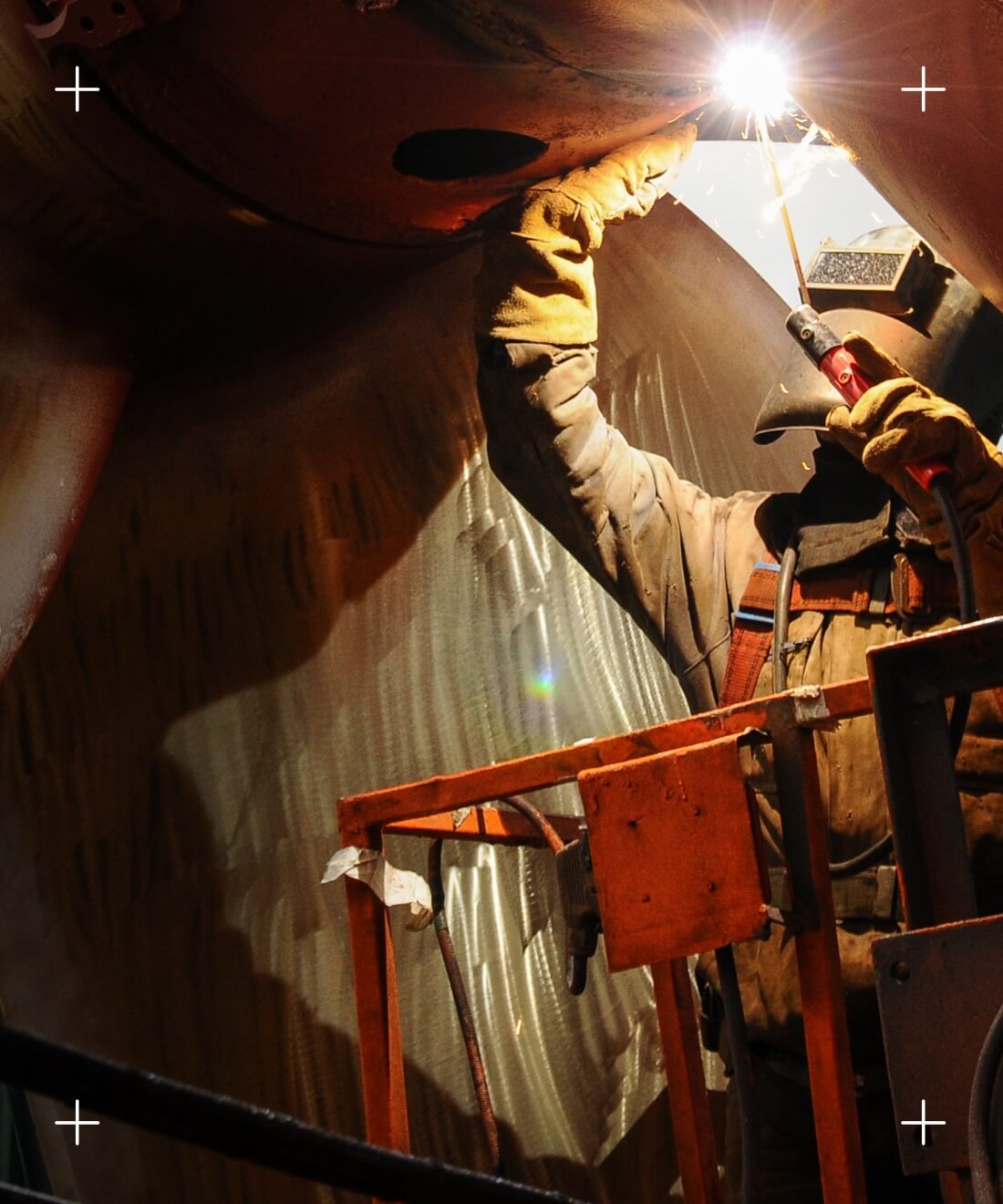
What is Defence Industry?
First, Defence Industry is not the Australian Defence Force.
Defence Industry is comprised of businesses with an industrial capability used to provide products or services used in, or which can be adapted to be used in, the Australian Department of Defence supply chain and/or an international defence supply chain. This includes businesses that deliver services which contribute to national security outcomes in addition to warfighting outcomes.

A growing workforce
Find out moreDemand is increasing for Australian businesses and their employees, to have the trade and technical skills to build and maintain fleets of new naval vessels, armoured vehicles, infrastructure and facilities. There is also increasing demand for Australian contribution to intelligence, reconnaissance, cyber and other information based capabilities.
Thousands of small and medium businesses Thousands of talented individuals
Our direct workforce is made up of thousands of individuals, with diverse skills and backgrounds.
Right across Australia there are many projects supporting Defence. With many more in the pipeline.
AUKUS Nuclear-Powered Submarine Pathway
Acquiring SSNs will involve a whole-of-nation undertaking, creating around 20,000 direct jobs over the next 30 years, across industry, government and at Defence.
Government Investment

$3.4 billion
Invested through the Advanced Strategic Capabilities Accelerator to rapidly develop and transition into service disruptive capability solutions that address Defence’s strategic priorities.

Growing your business
The Office of Defence Industry Support provides a range of services to support businesses in defence industry. These services aim to help small to medium-sized Australian businesses grow their capacity to meet Defence needs and to join global defence industry supply chains.

Grants for defence industry
If your small or medium-sized business is looking to invest in its defence-related capabilities, you can apply for a grant to support a proportion of your costs depending on the grant.

Sovereign Defence Industrial Priorities (SDIP) Stream
- Between $50,000 and $1 million available to support eligible businesses
- Up to 50% of the project cost
- For building capabilities aligned with Sovereign Defence Industrial Priorities (SDIPs)

Export Stream
- Between $15,000 and $250,000 available to support eligible businesses
- Up to 50% of the project cost
- For investment in projects that build defence export capacity in priority defence capability areas as identified by the SDIPs

Security Stream
- Between $5,000 and $100,000 available to support eligible businesses
- Up to 50% of the project cost
- To uplift or maintain the security controls needed to build defence capability in priority areas as identified by the SDIPs

Skilling Stream
- Between $5,000 and $250,000 available to eligible businesses or Defence Industry Associations
- Up to 50% of the project cost
- For defence sector skill development to support defence priority capabilities as identified by the SDIPs, now and into the future.

JSF Industry Support Program: Sustainment
- Phase 1 and 2 - up to $250,000 for Australian companies provided an assignment by the United States Government for maintenance and repair activities for existing components used in the Joint Strike Fighter Program
- Phase 3 and 4 - funding to be determined by the Department of Defence under the amount outlined in your supporting business case

JSF Industry Production and Modernisation
- Between $150,000 and $1.5 million available for eligible businesses
- Up to 50% of the project cost
- For the development of new or improved capabilities that will win work in the production and modernisation phases of the Joint Strike Fighter Program

US-Australia International Multidisciplinary University Research Initiative
- Up to $1 million per year over 3 years
- Available to Australian universities involved in a successful submission to the US Multidisciplinary University Research Initiative (MURI) program

Getting involved as an individual
Companies in Defence Industry need employees all across Australia with a wide range of skills.

Getting involved as a business
A business can tender for Defence contracts directly, or supply to an existing Defence contractor or sub-contractor.
Some of the skills needed in Defence Industry
Some of the skills Defence needs in Defence Industry are: engineering; design; manufacturing; program management; logistics; and support services.

Engineering
is fundamentally important to the design, construction and maintenance of the Australian Defence Force’s complex systems. Sub-disciplines of engineering have varying levels of relevance to defence technology and include systems engineering, mechanical engineering, civil engineering and electrical engineering.
The discipline includes degree-qualified engineers including specialists, such as aeronautical engineers or marine engineers; as well as those with vocational training in technical skillsets. Systems engineering is particularly relevant to complex defence projects and is in very high demand.

Design
assists with establishing the requirements for a project, creating a picture of the project’s complexity and build process. It includes a number of sub-disciplines, such as computer-aided design (CAD), systems design, interface design and software design. Design has significant intersections with engineering.
Design professionals typically operate closely with engineers to reduce project risk. In some areas of defence industry, designers are also trained as engineers. This can be a particularly effective practice in large-scale and complex projects such as naval shipbuilding.

Manufacturing
skills are those which support industrial production methods, particularly those which involve the scaled production of goods. Associated skills include fabrication, welding, production design, and boiler making.
Defence Industry manufactures military platforms and systems, such as armoured vehicles, as well as the spare parts for systems.

Program Management
includes a variety of skillsets which support the delivery of goods and services through effective planning and coordination. Specialists employed in program management can include contracting officers, project managers, project schedulers and cost estimators.
Defence Industry in Australia places particular importance on project management skills, due to the project-driven nature of defence.

Logistics
are required for every operational or training activity the Australian Defence Force undertakes and is absolutely critical for the management of Australian Defence Force vehicles and assets. In the defence sector, logistics refers to the practice of planning and organising complex activities in support of defence capability, which could include arranging transport of people and materiel, or the maintenance of military systems.

Support Services
Support to Defence can include a wide range of services, such as long-term maintenance for complex systems, training and simulation, and information and communication technologies (ICT) support. Support services intersect with other disciplines in various ways; this is particularly true of ICT services. Computers and digital technologies are increasingly critical to every piece of modern military technology. Without the skills needed to support this digitisation, the ADF’s technological advantage over potential adversaries would be eroded.





